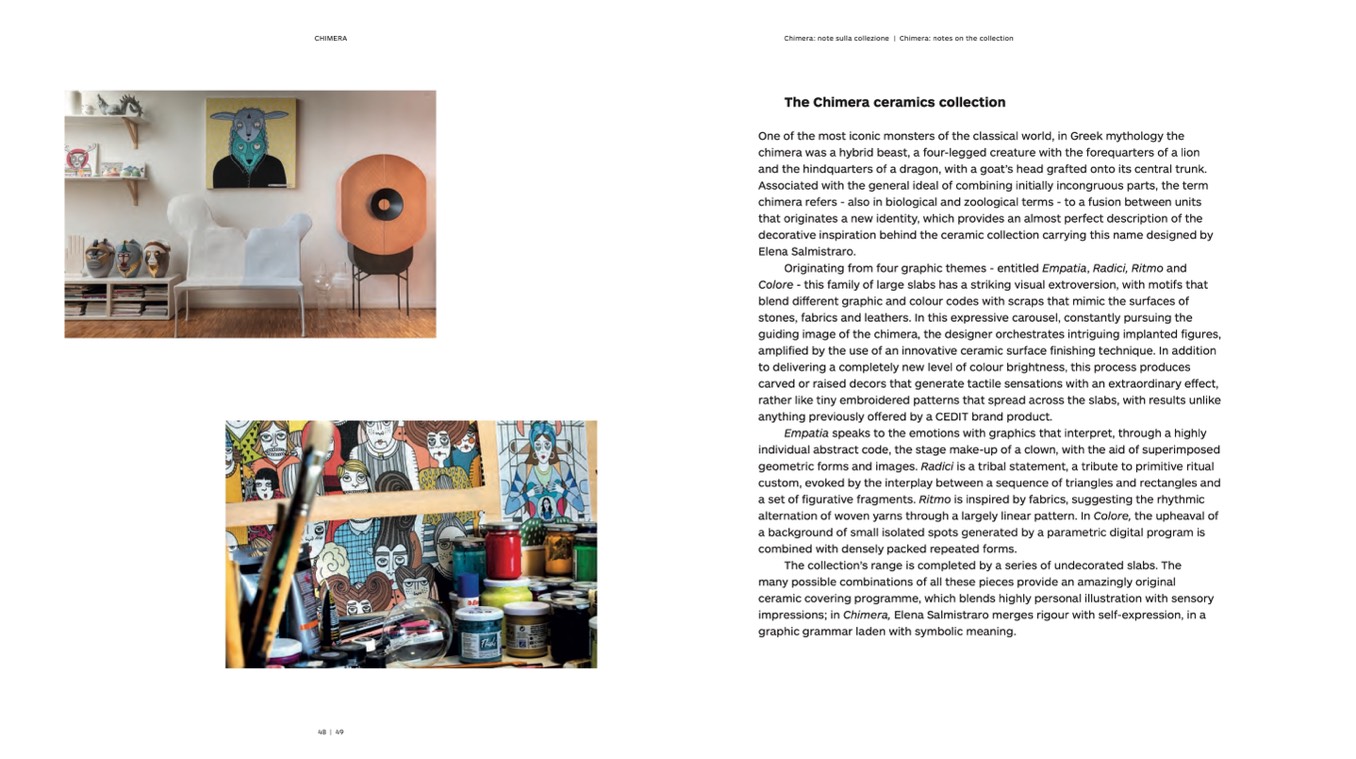
CHIMERA
Chimera: note sulla collezione | Chimera: notes on the collection
The Chimera ceramics collection
One of the most iconic monsters of the classical world, in Greek mythology the
chimera was a hybrid beast, a four-legged creature with the forequarters of a lion
and the hindquarters of a dragon, with a goat’s head grafted onto its central trunk.
Associated with the general ideal of combining initially incongruous parts, the term
chimera refers - also in biological and zoological terms - to a fusion between units
that originates a new identity, which provides an almost perfect description of the
decorative inspiration behind the ceramic collection carrying this name designed by
Elena Salmistraro.
Originating from four graphic themes - entitled Empatia, Radici, Ritmo and
Colore - this family of large slabs has a striking visual extroversion, with motifs that
blend different graphic and colour codes with scraps that mimic the surfaces of
stones, fabrics and leathers. In this expressive carousel, constantly pursuing the
guiding image of the chimera, the designer orchestrates intriguing implanted figures,
amplified by the use of an innovative ceramic surface finishing technique. In addition
to delivering a completely new level of colour brightness, this process produces
carved or raised decors that generate tactile sensations with an extraordinary effect,
rather like tiny embroidered patterns that spread across the slabs, with results unlike
anything previously offered by a CEDIT brand product.
Empatia speaks to the emotions with graphics that interpret, through a highly
individual abstract code, the stage make-up of a clown, with the aid of superimposed
geometric forms and images. Radici is a tribal statement, a tribute to primitive ritual
custom, evoked by the interplay between a sequence of triangles and rectangles and
a set of figurative fragments. Ritmo is inspired by fabrics, suggesting the rhythmic
alternation of woven yarns through a largely linear pattern. In Colore, the upheaval of
a background of small isolated spots generated by a parametric digital program is
combined with densely packed repeated forms.
The collection’s range is completed by a series of undecorated slabs. The
many possible combinations of all these pieces provide an amazingly original
ceramic covering programme, which blends highly personal illustration with sensory
impressions; in Chimera, Elena Salmistraro merges rigour with self-expression, in a
graphic grammar laden with symbolic meaning.
48 | 49

